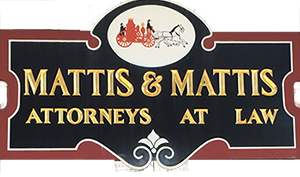Power of Attorney
A Power of Attorney is a legal document in which one person (the “Principal”) designates another person as his/her “Agent.” The Principal decides which powers are granted to the Agent. These can be limited (e.g. authorize the Agent to sign a contract for the Principal when the Principal is out of town on other business) or quite extensive (e.g. authorize the Agent to conduct the general financial affairs of the Principal by paying bills; conducting banking; making and cashing in investments; buying, selling and mortgaging property; entering into contracts; and even making gifts).
The granting of a Power of Attorney does not prevent the Principal from acting in his/her own behalf as long as the Principal is able and willing to do so. The Power of Attorney does not make the Agent the Principal’s “boss” or guardian but does allow the Agent to act if the Principal becomes disabled due to illness or infirmity. The Agent must act in accordance with the Principal’s reasonable expectations to the extent actually known to the Agent, and otherwise must act in the Principal’s best interest, act in good faith, and act only withing the scope of authority granted to the Agent by the Principal in the Power of Attorney.
The authority of the Agent to act under the Power of Attorney terminates at the death of the Principal. The Power of Attorney can also be revoked by the Principal as long as the Principal has no legal impediment (e.g. a judicial determination that the Principal is incapacitated or incompetent) to making the revocation.
The experienced attorneys at Mattis & Mattis stand ready to assist their clients who are contemplating the execution of a Power of Attorney by reviewing the applicable law, discussing the types of powers which may (or perhaps which should not) be granted to an Agent, and by preparing the documents which fit the specific needs of the individual clients.
